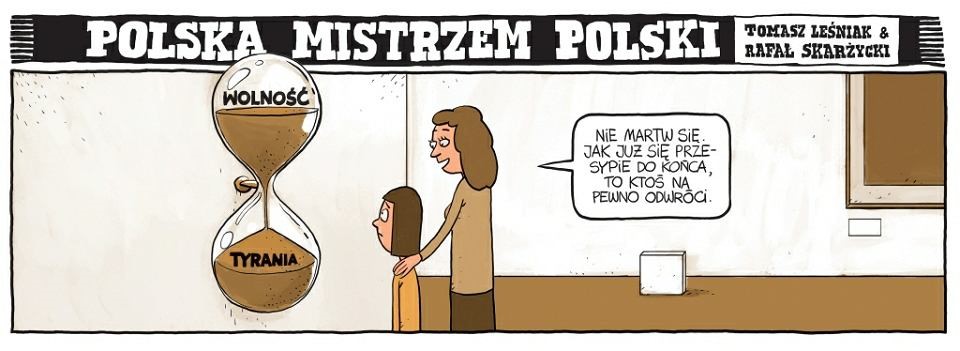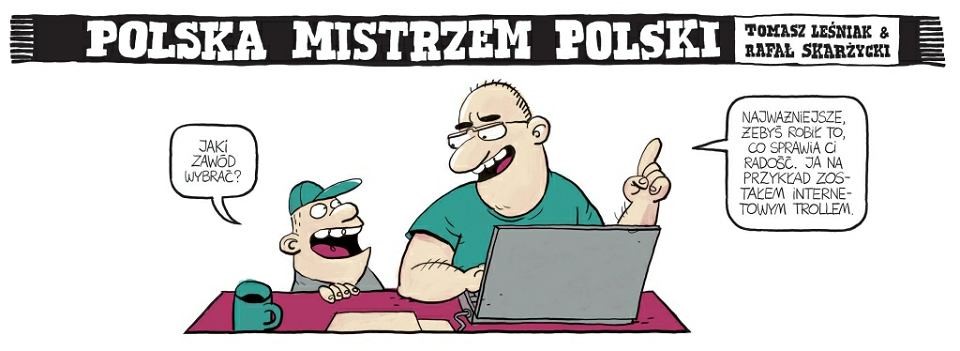
Why the Opposition in Poland is so Weak
Sometimes a small moment can perfectly crystalize a monumental problem. That happened today in Poland.
As readers of this blog know, the far-right authoritarian regime of Jarosław Kaczyński and the Law and Justice Party (Prawo i Sprawiedliwość, or PiS) have been dismantling Poland’s constitutional democracy for the past year and a half. They represent a mortal threat to everything that Poland has accomplished since the overthrow of communism in 1989. They only enjoy the support of somewhere between 30-40 percent of the population, but they won the election in 2015 because of a technicality in the electoral law that discards the votes of all parties winning fewer than 5% of the total. Since the left is fragmented, they are entirely unrepresented in the parliament, and PiS has a narrow majority of the seats.
The main opposition party is called Civic Platform (Platforma Obywatelska). It belongs to the same European bloc of parties that includes Angela Merkel’s Christian Democrats, and presents itself as a centrist movement for whom expertise, stability, and good management are the highest priorities in governance. They cultivate an image as patriotic without being nationalistic, Catholic but not extremist or fundamentalist, pro-market while sensitive to the value of the modern European welfare state.
In other words, in a normal world they would be rather dull. As Douglas Adams might have put it, “mostly harmless.”
But actually, it’s worse than that. It is not a sin to be boring (at least, I like to tell myself that!). Civic Platform politicians often present this trait as if it were even a virtue, and maybe in today’s tumultuous world, it is. One could argue that when faced with an existential threat, like the one posed by the rise of “illiberal democracy,” we need to all rally around a center of steady resolve, and set aside every potential controversy in the name of unity against a common enemy. I’m actually inclined to agree with this position.
Then something like this happens. Warsaw recently held its annual book fair, and linked to it was the Warsaw Comics Festival, the largest regular gathering of its kind in Poland. During the festival, attendees were given a book of political cartoons by Tomasz Leśniak and Rafał Skarżycki as part of the international “Free Comic Book Day” program. Their cartoons appear regularly under the title “Poland, the Champion of Poland” (Polska Mistrzem Polski), and you can view the ones collected in this free edition here. They poke fun at ostentatious patriotism, hypocritical religiosity, heartless corporate management, and political self-aggrandizement. I’m posting a sampling below, but I urge everyone to check out the complete series.
One of the sponsors of the Comics Festival is the city of Warsaw, where the mayor and the majority of the city council belong to Civic Platform. This has been a major roadblock for Kaczyński’s attempt to transform Poland, because most of the large cities constitute islands of opposition to his vision. Suddenly on May 25 the cultural office of the city government issued this statement: „We announce that we did not know in advance the contents of the comics „Poland, Champion of Poland.” After acquainting ourselves with this publication, we state unambiguously that we do not accept its contents. For this reason, the decision has been made to withdraw the subsidy for the project of which this comic is a part.” In other words, because they were offended by the cartoons, they pulled funding for the entire festival.
This was not an act of the national government, but of the supposedly freedom-loving liberal democrats sustaining Warsaw as a fortress against the barbarians from PiS. It is a reminder that Civic Platform is now, and always was, a right-wing political party. They have been able to wear the mantle of Defenders of Democracy because Poland is faced with an unabashed attempt to destroy the entire constitutional order, but under other circumstances many of the anti-PiS protesters of 2017 would be protesting Civic Platform with just as much fervor. In one year local and regional elections will be held, and these same Civic Platform politicians will call on Poles of all ideological persuasions to put aside their differences in the name of defeating PiS. And they should! Local governments still retain some genuine power, and they might be the only thing holding Poland back from an even deeper slide into darkness. But already some of my leftist and even liberal friends have said to me, “sure PiS is bad, but Platforma isn’t all that different.” If it looks like it’s a choice between one or the other (and for all practical purposes, it is), then those with even moderately progressive views will find little reason to even turn out to vote. The PiS base, in contrast, will definitely be activated.
The fate of a comic book festival in Warsaw might not seem like much, but there in a microcosm is why I am starting to despair.













